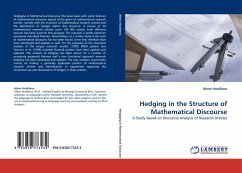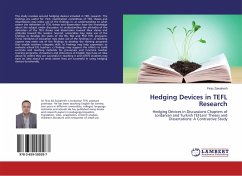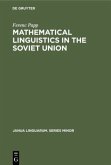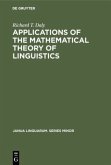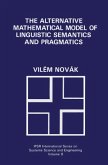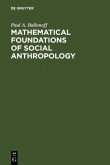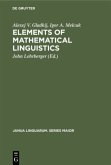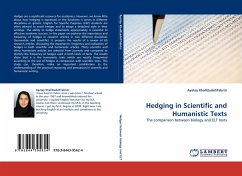Hedgigng in Mathematical Discourse The book deals with some features of mathematical discourse typical of the genre of mathematical research articles, namely with the structure of mathematical research articles and the distribution of hedges within this structure. A corpus of 30 mathematical research articles (over 100 000 words) from different sources has been used for this purpose. The research is partly based on previously described theories. Nevertheless, as a similar study in the area of mathematical discourse has not been found, some new methods have been developed and applied as well. For the purposes of the structural analysis of the corpus material, Swales' (1990) IMRD pattern and Tarone's et al. (1998) Inverted Pyramid pattern have been applied and adapted. The analysis of hedging has been drawn on a number of previously proposed theories and a new functional approach towards hedging has been proposed and applied. The two analyses concentrate mainly on finding a generally applicable pattern of mathematical research articles and identification of regularities regarding the functional use and distribution of hedges in these articles.

